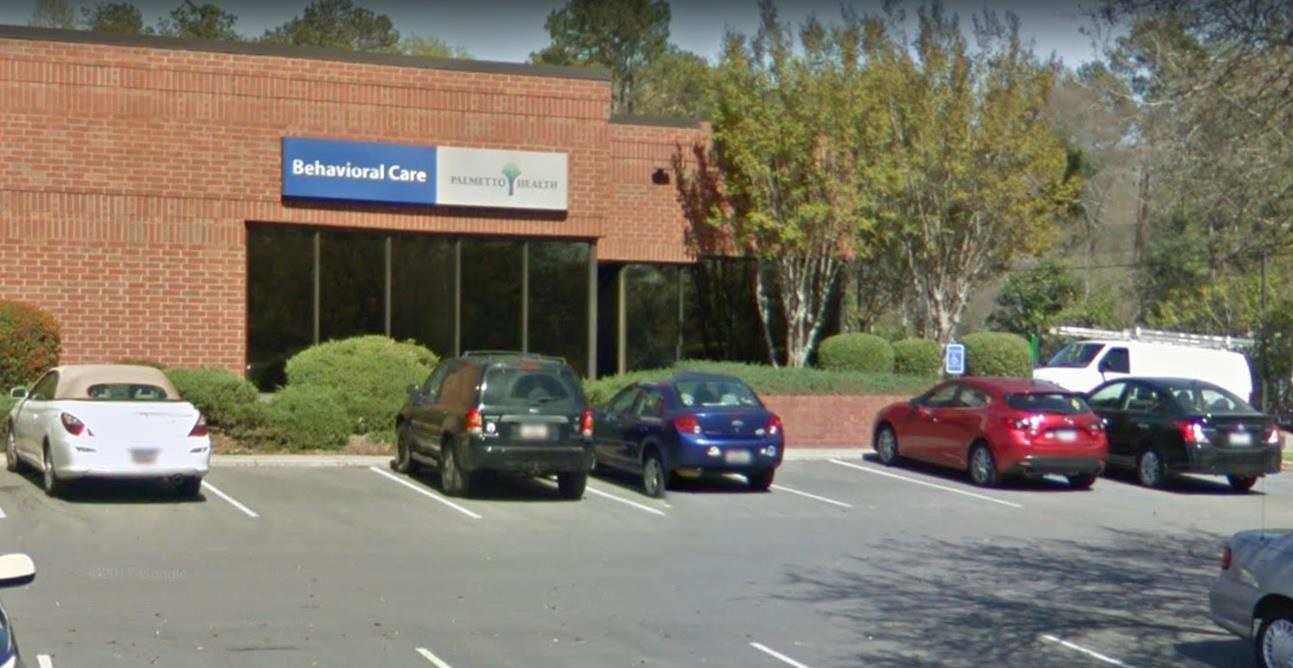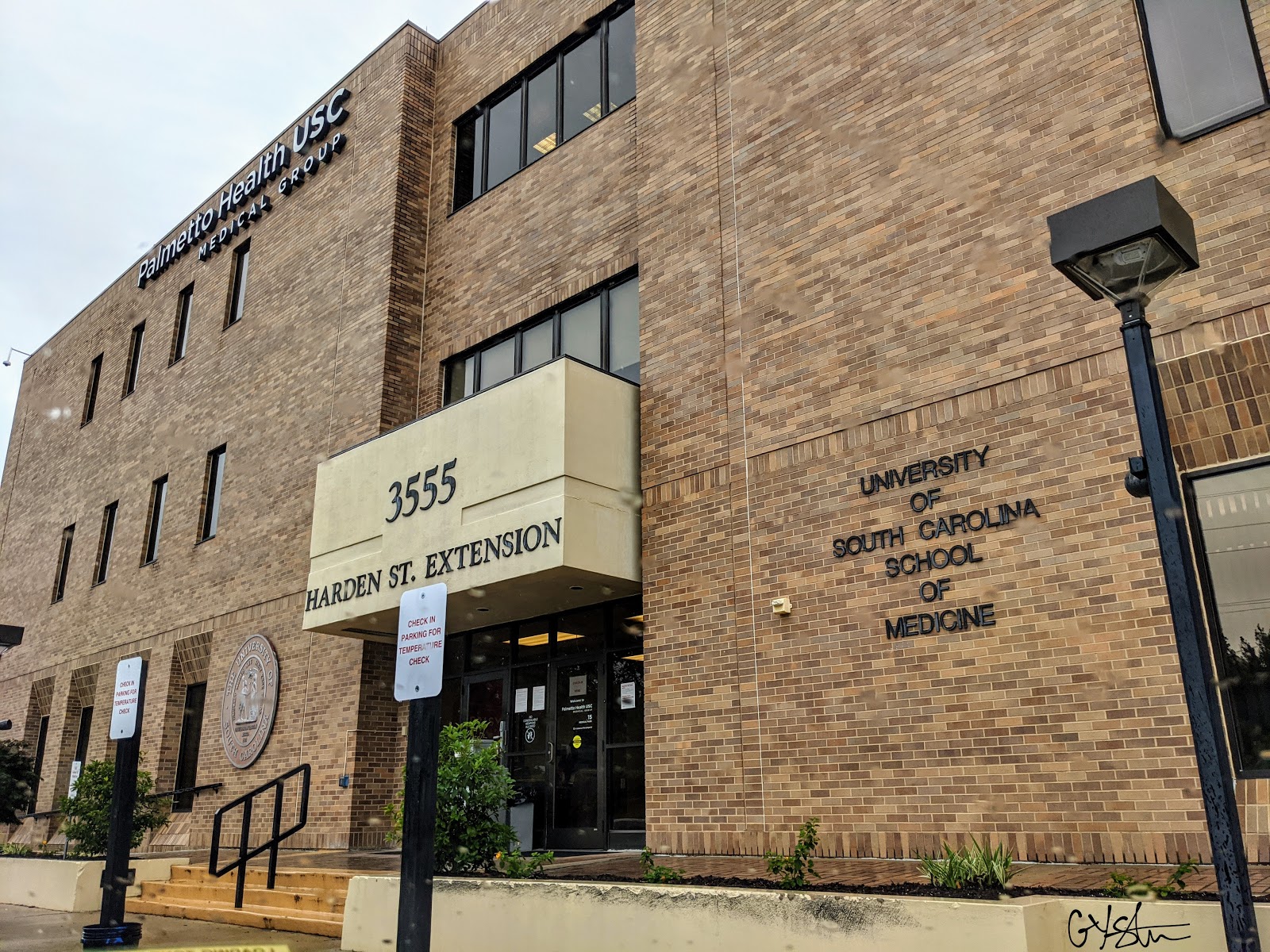Prisma Health

Overview
Prisma Health is an accredited substance abuse treatment center that provides inpatient and outpatient detoxification, for men and women from 18+ years of age. As part of their special programs, Prisma Health treats children/adolescents with serious emotional disturbance (sed) and clients who have experienced trauma. To help patients achieve sobriety, Prisma Health provides intake assessments. Afterward, patients receive 12-step facilitation, individual psychotherapy, and cognitive behavioral therapy during treatment. Prisma Health is located in Columbia, South Carolina, providing treatment for people in Richland County, accepting county or local government funds, community mental health block grants, and community service block grants.
Prisma Health at a Glance
Payment Options
- County or local government funds
- Community Mental Health Block Grants
- Community Service Block Grants
- Medicaid
- Other State funds
Assessments
- Comprehensive mental health assessment
- Comprehensive substance use assessment
Age Groups
- Adults
- Children/adolescents
- Young adults
Operation
- Private for-profit organization
Accreditations
The Joint Commission:

The Joint Commission, previously known as JCAHO, is a nonprofit organization that accredits rehabilitation organizations and programs. Established in 1951, its mission is to enhance the quality of patient care and showcase excellence in healthcare delivery.
Treatment At Prisma Health

Conditions Treated
Mental health treatment:
Mental health treatment involves a range of therapeutic approaches, provided by licensed professionals, to address mental health challenges. It includes psychotherapy, medication, and holistic practices to help individuals manage conditions, improve coping skills, and enhance overall well-being. The goal is to empower individuals to lead fulfilling lives and reduce the stigma surrounding mental health.
Alcoholism:
Alcohol addiction is a condition where someone feels a strong and uncontrollable urge to drink alcohol, often leading to negative effects on their health, relationships, and daily life. To assist individuals grappling with alcohol addiction, various strategies exist. Initially, supervised detoxification may be necessary to ensure a safe cessation of alcohol consumption. Following this, counseling and therapy play a crucial role in addressing the psychological facets of the addiction. Engaging in support groups can also offer a sense of camaraderie and comprehension.
Opioid Addiction:
Opioid rehabs specialize in supporting those recovering from opioid addiction. They treat those suffering from addiction to illegal opioids like heroin, as well as prescription drugs like oxycodone. These centers typically combine both physical as well as mental and emotional support to help stop addiction. Physical support often includes medical detox and subsequent medical support (including medication), and mental support includes in-depth therapy to address the underlying causes of addiction.
Substance use treatment:
Substance use rehabilitation represents a holistic treatment strategy tailored to aid individuals grappling with drug or alcohol addiction. This comprehensive rehabilitation method encompasses two key aspects: first, addressing the physical dependency, often commencing with detoxification, and second, tackling the psychological triggers through a range of therapeutic techniques. The ultimate aim is to empower individuals to attain and sustain sobriety while providing them with the necessary skills and coping mechanisms to successfully reintegrate into society and lead a life free from substance abuse.
Co-occurring Disorders:
Dual-diagnosis rehabilitation centers usually offer the most suitable approach for addressing concurrent mental health and substance abuse conditions. Within these facilities, a team of medical and behavioral professionals is typically assembled, employing diverse interventions and cultivating an optimal therapeutic environment to enable you to attain and maintain lasting recovery. The treatment regimen often encompasses evidence-based therapies, such as cognitive behavioral therapy, complemented by recovery support gatherings, 12-step program facilitation, skills development, and group therapy.

Levels Of Care
Detoxification:
Detoxification (detox) is the process of clearing the body of drugs or alcohol that an individual has consumed. The purpose of detox is to safely manage withdrawal symptoms when someone stops taking drugs or alcohol. It denotes a clearing of toxins from the body of the patient who is acutely intoxicated and/or dependent on substances of abuse. Detoxification seeks to minimize the physical harm caused by the abuse of substances.
Outpatient:
Outpatient treatment at rehab centers provides adaptable therapy schedules, usually spanning 1-3 hours weekly, enabling participants to maintain their everyday routines while undergoing treatment. On the other hand, intensive outpatient programs require a more dedicated time investment, frequently around 9-15 hours a week, delivering a deeper therapeutic experience without the commitment of inpatient residency.
Hospital inpatient treatment:
Inpatient treatment involves an intensive, residential therapeutic program designed to treat serious addictions or other medical conditions. With a typical stay ranging from 30 to 90 days, individuals receive a structured regimen of various therapies including individual and group counseling, behavioral therapies, and family counseling. Under professional supervision, patients immerse themselves in a supportive environment, conducive to addressing underlying issues and promoting long-term recovery.

Treatment Modalities
12-step facilitation:
12-Step Facilitation is a structured approach to recovery used in many rehab facilities. It's rooted in the principles and practices of Alcoholics Anonymous (AA) and its 12-step program. The facilitation process promotes abstinence and supports individuals in becoming actively involved in 12-step self-help groups. The approach emphasizes personal responsibility, spiritual growth, and the importance of peer support to maintain sobriety and prevent relapse. By guiding individuals through each step, 12-step Facilitation aids participants in understanding the underlying causes of their addiction, seeking amends, and fostering a commitment to lifelong recovery.
Individual psychotherapy:
In individual therapy, a person engages in a one-on-one session with a qualified therapist or counselor. This therapeutic approach is crucial in successful substance abuse treatment because it delves into the underlying causes of addiction, addressing issues the individual may encounter in their familial, social, and professional or academic environments.
Cognitive Behavioral Therapy:
Cognitive Behavioral Therapy (CBT) is a therapeutic approach that emphasizes the interconnectedness of thoughts, emotions, and actions. It promotes healthy reactions to thoughts and emotions, steering individuals away from harmful responses such as substance abuse. Proven effective for various addiction recoveries, CBT enhances an individual's self-awareness and self-control. Through CBT, individuals learn to better gauge their emotional well-being, communicate more effectively, and handle stress without resorting to drugs or alcohol.
Dialectical Behavior Therapy:
Dialectical Behavior Therapy (DBT) is a cognitive-behavioral therapeutic approach primarily to treat individuals with borderline personality disorder. It combines standard cognitive-behavioral techniques with distress tolerance, acceptance, and mindfulness concepts. DBT emphasizes the balance between accepting and changing behaviors, aiming to help patients build life skills, regulate emotions, and improve interpersonal relationships. It has since been adapted for and shown effectiveness in treating a variety of other mental health conditions.
Electroconvulsive Therapy:
Electroconvulsive Therapy (ECT) is a medical procedure used in the treatment of severe mental health conditions, such as severe depression, bipolar disorder, and certain types of schizophrenia. During ECT, a carefully controlled electric current is applied to the brain, inducing a controlled seizure. This therapeutic intervention is typically administered under anesthesia and muscle relaxants to minimize discomfort and potential risks. ECT is considered when other treatments, such as medication and psychotherapy, have not been effective or when a rapid and intensive intervention is required. While its exact mechanisms are not fully understood, ECT has shown significant efficacy in relieving symptoms in some individuals, leading to improved mood and overall mental well-being. Healthcare professionals carefully monitor its use to ensure safety and effectiveness for each patient.
Nicotine replacement:
Nicotine Replacement Therapy (NRT) is a medically-approved approach designed to help individuals quit smoking by providing a controlled dose of nicotine without the harmful chemicals found in cigarettes. Available in various forms, such as patches, gums, lozenges, and inhalers, NRT reduces withdrawal symptoms and cravings, making the transition to a smoke-free life more manageable.
Group counseling:
Group Counseling is a therapeutic approach where individuals come together under the guidance of a trained counselor to share experiences, offer support, and gain insights. This collective format promotes mutual understanding and growth, allowing participants to learn from one another's perspectives and challenges.
Experiential Therapy:
Experiential Therapy is a therapeutic approach that emphasizes direct experience and active client involvement to gain insight into unresolved issues and trauma. Through guided activities, role-playing, and other interactive techniques, clients are encouraged to confront and explore their emotions in the present moment, leading to a deeper understanding and resolution of their challenges. This therapy is rooted in the belief that transformative change occurs through meaningful experiences.
Trauma-related counseling:
Trauma therapy delves into past traumatic events that might be influencing a client's current life experiences. Often, trauma serves as a significant precipitant or underlying cause of addiction. Such traumas can arise from childhood sexual abuse, domestic violence, growing up with a mentally ill parent, early parental loss, and experiences of sexual assault in teen or adult years, among other circumstances. Trauma therapy aims to aid the individual in processing and navigating beyond these traumas, guided by the expertise and empathy of skilled mental health specialists.
Creative Arts Therapy:
Creative Arts Therapy is a therapeutic technique that harnesses the power of the arts— including visual arts, dance, music, and drama—to help individuals express themselves, explore their emotions, and improve their mental, emotional, and even physical well-being. Through engaging in the creative process under the guidance of a trained therapist, individuals can uncover and work through underlying issues, improve self-awareness, and develop coping skills in a safe and supportive environment. This form of therapy is used to treat a variety of mental health conditions and is beneficial for people of all ages.
Sound Therapy:
Sound Therapy is a therapeutic practice that uses sound and music to support individuals in achieving improved emotional, mental, and physical well-being. This modality often employs a variety of musical instruments, vocalizations, and technologies to produce soundscapes that can promote relaxation, emotional release, and mental clarity. Through guided sessions, individuals can explore the healing potential of sound, benefiting from a sense of inner harmony and a deeper connection to the world around them. Sound therapy can be an integral part of a holistic approach to wellness, promoting balance, stress reduction, and self-awareness.
Ancillary Services
Special Programs
- Children/adolescents with serious emotional disturbance (SED)
- Clients who have experienced trauma

Additional Locations
Contact Information
DISCLAIMER: The facility name, logo and brand are the property and registered trademarks of Prisma Health, and are being used for identification and informational purposes only. Use of these names, logos and brands shall not imply endorsement. BetterAddictionCare.com is not affiliated with or sponsored by Prisma Health.




